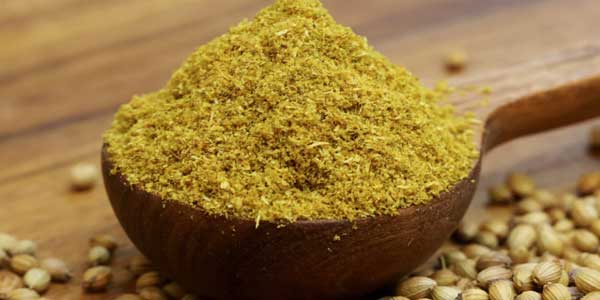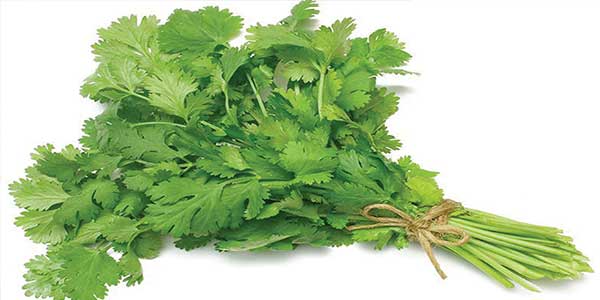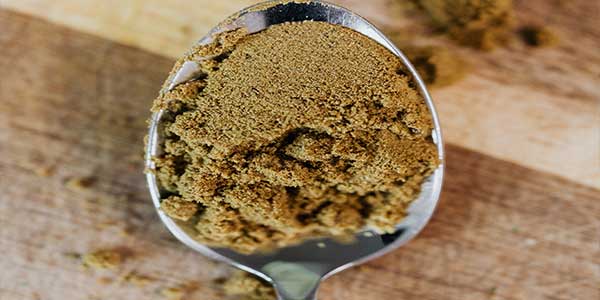Introduction:
Coriander powder, also known as Dhaniya Powder, is a versatile spice widely used in cooking around the world. Derived from coriander seeds, it adds a unique flavor and aroma to a variety of dishes. Coriander powder is a staple in Indian, Middle Eastern, and Mexican cuisines, among others. In addition to its culinary uses, coriander powder offers several health benefits and has a long history of medicinal use. In this comprehensive article, we will explore the uses, qualities, origin, sources, production, applications, health benefits, culinary uses, how to use coriander powder in cooking, and potential side effects associated with its consumption.
Origin and Sources of Coriander Powder (Dhaniya Powder):
Coriander powder originates from coriander seeds, which come from the coriander plant (Coriandrum sativum). Coriander is native to the Mediterranean and Middle Eastern regions and has been cultivated for thousands of years. Today, coriander is grown and harvested in various regions worldwide, including India, Mexico, Russia, Morocco, and China. The seeds are processed to produce coriander powder, which is readily available in grocery stores, spice markets, and online sources.
Qualities of Coriander Powder (Dhaniya Powder):
Coriander powder possesses several qualities that make it a valuable spice in cooking. Here are some notable qualities of coriander powder:
a) Flavor Profile: Coriander powder has a warm, nutty, and slightly citrusy flavor. It offers a pleasant balance of sweetness and earthiness. The flavor is mild and versatile, allowing it to enhance various dishes without overpowering other ingredients.
b) Aromatic: Coriander powder has a fragrant aroma that adds depth and complexity to dishes. When toasted or heated, the aroma intensifies, releasing a delightful scent.
c) Versatility: Coriander powder is a versatile spice used in both savory and sweet dishes. It complements a wide range of flavors and ingredients, making it a popular choice in numerous cuisines worldwide.
d) Nutritional Value: Coriander powder is a good source of dietary fiber, vitamins, and minerals. It contains antioxidants and has anti-inflammatory properties. However, the nutritional content may vary depending on the quality and freshness of the powder.

Production of Coriander Powder (Dhaniya Powder):
The production of coriander powder involves harvesting and processing coriander seeds. Here’s a brief overview of the production process:
a) Harvesting: Coriander plants produce small, round seeds that turn brown when ripe. The plants are typically harvested when the seeds have matured and changed color.
b) Drying: After harvesting, the coriander seeds are dried thoroughly to remove moisture. This step is crucial to prevent mold and ensure a longer shelf life for the seeds.
c) Grinding: Once dried, the coriander seeds are ground into a fine powder using a spice grinder or mortar and pestle. The grinding process releases the aroma and flavors of the seeds, resulting in coriander powder.
d) Packaging: The freshly ground coriander powder is then packaged and sealed to preserve its freshness and quality. It is typically sold in airtight containers to maintain its aroma and prevent moisture absorption.
Uses and Applications of Coriander Powder (Dhaniya Powder):
Coriander powder is a versatile spice used in various culinary applications. Let’s explore some of its primary uses:
a) Seasoning and Flavoring: Coriander powder is commonly used as a seasoning and flavoring agent in cooking. It adds a distinct taste to curries, stews, marinades, soups, and sauces. It pairs well with other spices such as cumin, turmeric, and chili powder.
b) Homemade Spice Blends: Coriander powder is a key ingredient in many homemade spice blends, such as garam masala, curry powder, and taco seasoning. These blends are used to enhance the flavor of specific dishes or cuisines.
c) Pickling: Coriander powder can be used in pickling solutions to add flavor and aroma to preserved vegetables and fruits. It imparts a unique taste to pickles and chutneys.
d) Baking: Coriander powder can be incorporated into baking recipes, particularly in bread, pastries, and cookies. It adds a subtle warmth and depth of flavor to sweet baked goods.
e) Garnish: In some dishes, coriander powder is sprinkled as a finishing touch or garnish. It adds visual appeal and a hint of flavor to salads, roasted vegetables, and grilled meats.

Health Benefits of Coriander Powder (Dhaniya Powder):
Coriander powder offers several potential health benefits due to its nutritional content and active compounds. Here are some of the notable health benefits associated with coriander powder:
a) Digestive Aid: Coriander powder is known for its digestive properties. It can help alleviate digestive discomfort, such as bloating, gas, and indigestion. It may also help stimulate the secretion of digestive enzymes, promoting healthy digestion.
b) Anti-inflammatory and Antioxidant Properties: Coriander powder contains antioxidants that help neutralize free radicals and reduce oxidative stress in the body. It also possesses anti-inflammatory properties, which may aid in reducing inflammation-related conditions.
c) Blood Sugar Regulation: Some studies suggest that coriander powder may have a beneficial effect on blood sugar levels. It may help regulate insulin secretion and improve glucose metabolism, making it potentially useful for individuals with diabetes or those at risk of developing the condition.
d) Cholesterol Management: Coriander powder may contribute to maintaining healthy cholesterol levels. It may help lower LDL (bad) cholesterol levels and increase HDL (good) cholesterol levels, promoting heart health.
e) Anti-microbial Properties: Coriander powder possesses antimicrobial properties that can inhibit the growth of certain bacteria and fungi. It may contribute to better oral health and reduce the risk of infections.
Use of Coriander Powder (Dhaniya Powder) in Cooking:
Coriander powder is a versatile spice that can be used in various ways in cooking. Here are some tips to help you use coriander powder effectively:
a) Flavor Enhancer: Add coriander powder early in the cooking process to allow its flavors to develop and infuse into the dish. This enhances the overall taste and aroma.
b) Spice Blends: Incorporate coriander powder into homemade spice blends to create unique flavor profiles for specific dishes or cuisines. Experiment with different combinations to find your preferred blend.
c) Toasting: Toasting coriander powder before using it can intensify its flavors. Heat a dry skillet and add the powder, stirring it continuously until it becomes fragrant. Be cautious not to burn it, as it can quickly turn bitter.
d) Pairing with Other Spices: Coriander powder combines well with other spices, such as cumin, turmeric, and chili powder. Experiment with different spice combinations to create depth and complexity in your dishes.
e) Storage: To maintain the freshness and potency of coriander powder, store it in an airtight container in a cool, dark place away from moisture, heat, and sunlight. Use it within six months for the best flavor.

Side Effects and Precautions:
While coriander powder is generally safe for consumption, it’s essential to be aware of potential side effects and take necessary precautions:
a) Allergies: Some individuals may be allergic to coriander or other spices. If you experience allergic reactions such as itching, hives, or difficulty breathing after consuming coriander powder, discontinue its use and seek medical attention if necessary.
b) Medication Interactions: Coriander powder may interact with certain medications, including anticoagulants (blood thinners), antidiabetic drugs, and medications metabolized by the liver. If you are taking any medications, consult with a healthcare professional before consuming large amounts of coriander powder or using coriander supplements.
c) Pesticide Residues: It’s important to ensure that the coriander powder you purchase is sourced from reliable suppliers who adhere to quality standards and minimize pesticide residues. Consider choosing organic or locally sourced options whenever possible.
d) Pregnancy and Breastfeeding: Pregnant and breastfeeding women can generally consume coriander powder as part of a balanced diet. However, it’s always recommended to consult with a healthcare professional for personalized advice.
Conclusion:
Coriander powder, with its distinct flavor, aroma, and numerous health benefits, is a valuable addition to any kitchen. Whether used as a seasoning, flavor enhancer, or key ingredient in spice blends, coriander powder adds depth and complexity to a wide range of dishes. By understanding its origin, sources, qualities, production methods, applications, health benefits, culinary uses, how to use coriander powder in cooking, and potential side effects, you can confidently incorporate this versatile spice into your culinary repertoire. Enjoy the delightful taste and nutritional benefits that coriander powder brings to your favorite recipes.